Living a Nightmare
Fana couldn't contact her family for months.
The first phone call changed her life.

A small community in Australia is living a nightmare.
This is Fana, Tesfu and Amele.
In their home country, a brutal conflict has unfolded.
For their community, communication is limited, but each successful call home may bring more bad news.
A cousin dead, a sister raped, a brother missing.
In a desperate attempt to tell the world their story, they spoke to SBS Dateline.



Fana, Tesfu and Amele are from Tigray, a region in the north of Ethiopia.
In November, a conflict began between the Ethiopian federal government and Tigray’s ruling faction, The Tigray People's Liberation Front (TPLF).
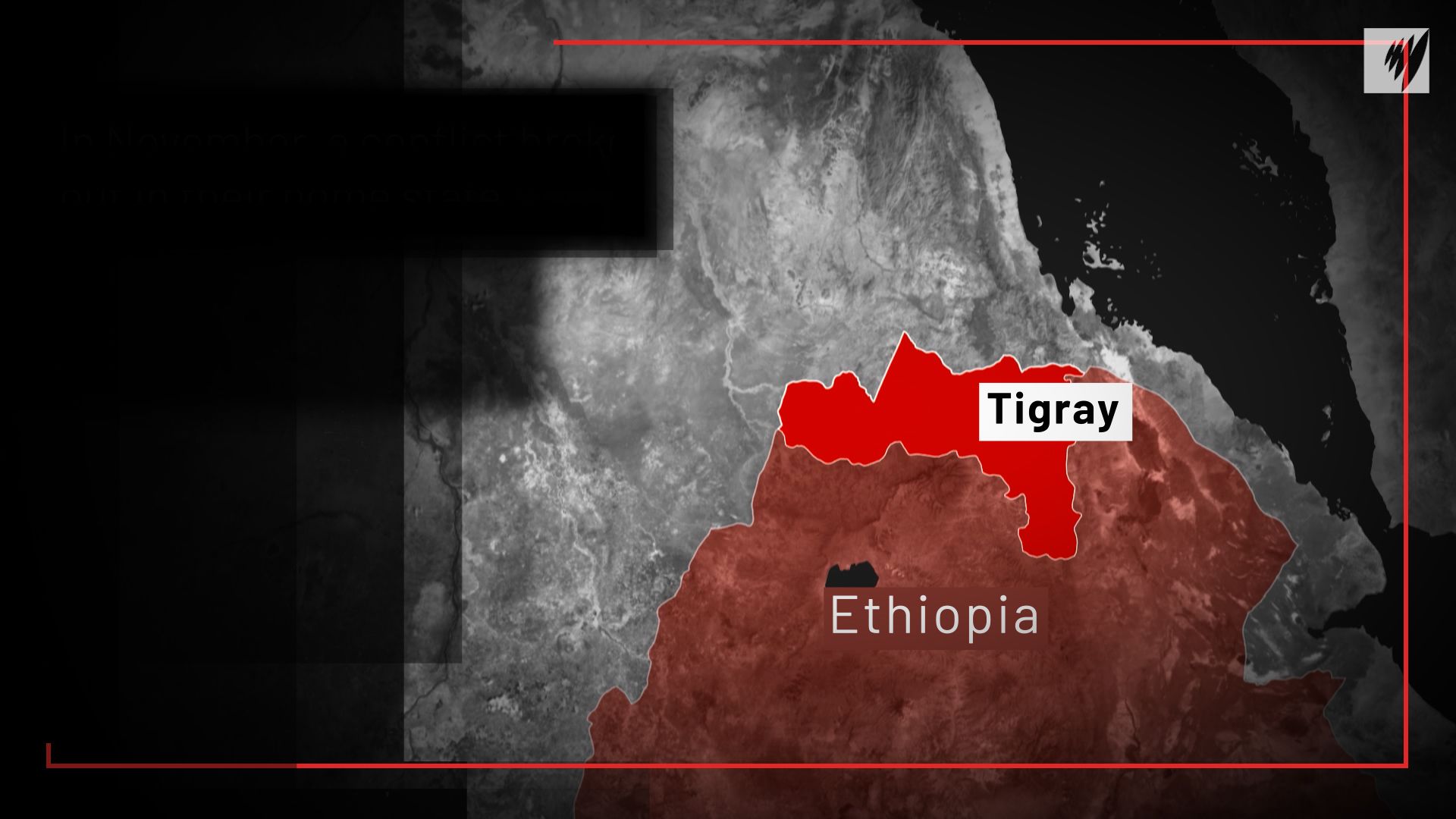
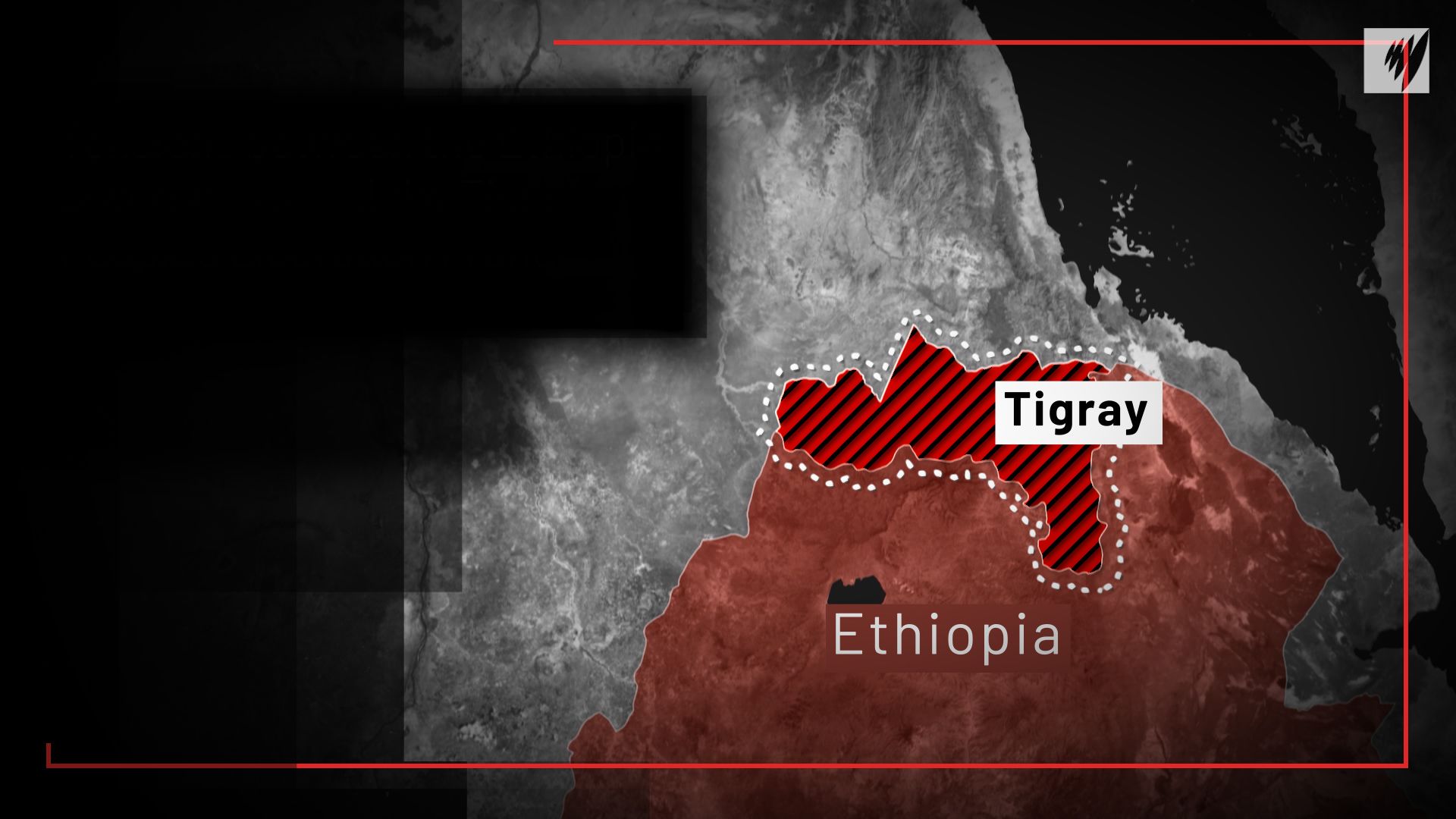
The tension is historic and the politics are complicated.
The TPLF were part of a four party ruling coalition that goverened from 1995 - 2019. They were succeeded by current Prime Minister Abiy Ahmed in 2018.
The TPLF continued to govern the Tigray state.
In 2019, Abiy merged the ethnic and region-based parties to form a more centralised government. The TPLF refused.
Fast forward to the pandemic, Abiy postponed scheduled elections, citing the COVID-19 as the reason.
The TPLF went ahead with their own elections in September, labelling Abiy as an illegitimate leader.
The tensions reached a tipping point in November. The Ethiopian government say the TPLF captured military bases in Tigray. The TPLF say this was an act of self defence to an immient invasion by the Ethiopian government.
Prime Minister Abiy Ahmed ordered an offensive on November 4.
Soldiers from neighbouring country Eritrea entered the region, siding with the Ethiopian government.
Phone lines and the internet were cut.
Journalists were unable to enter the region.

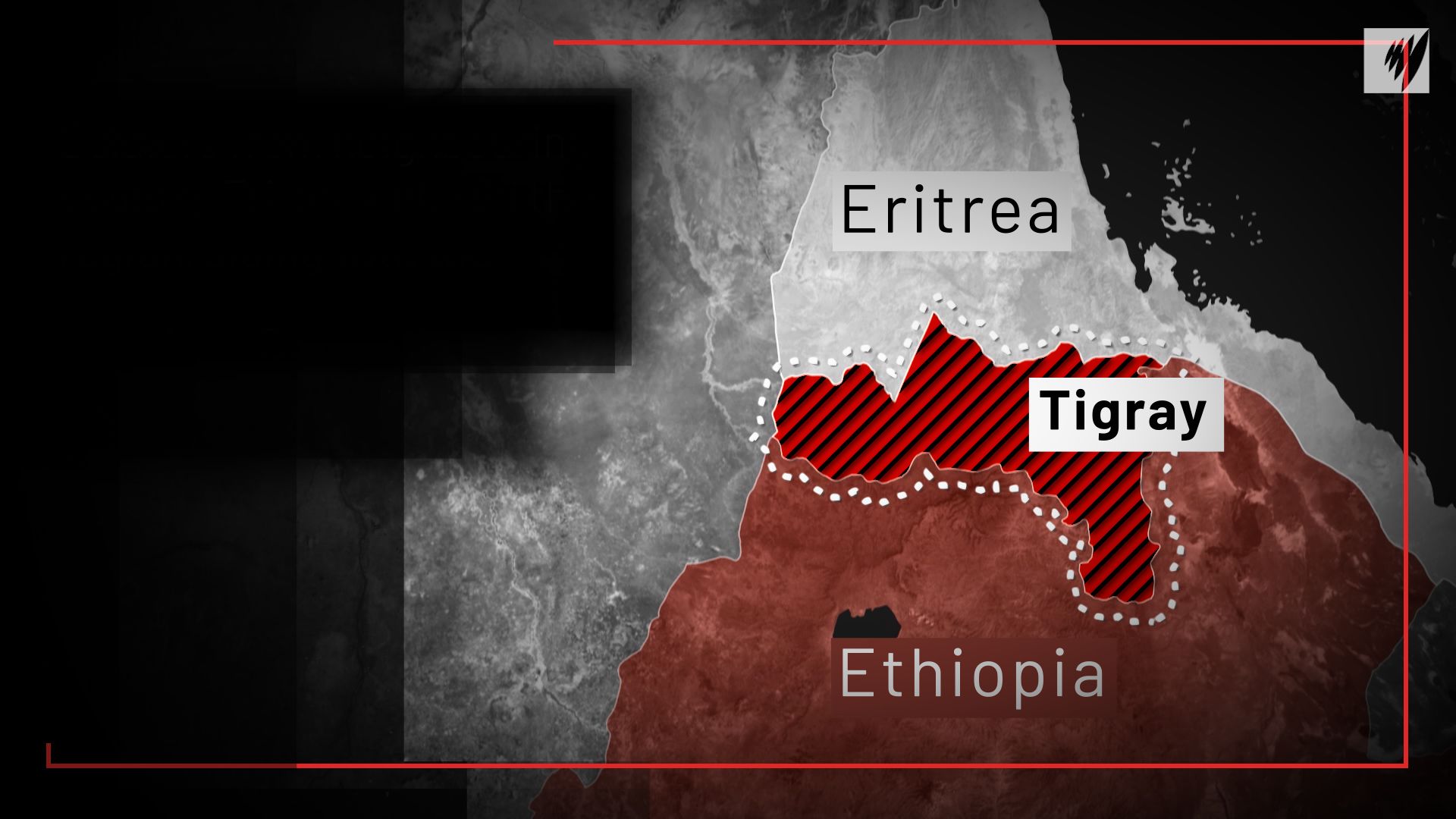
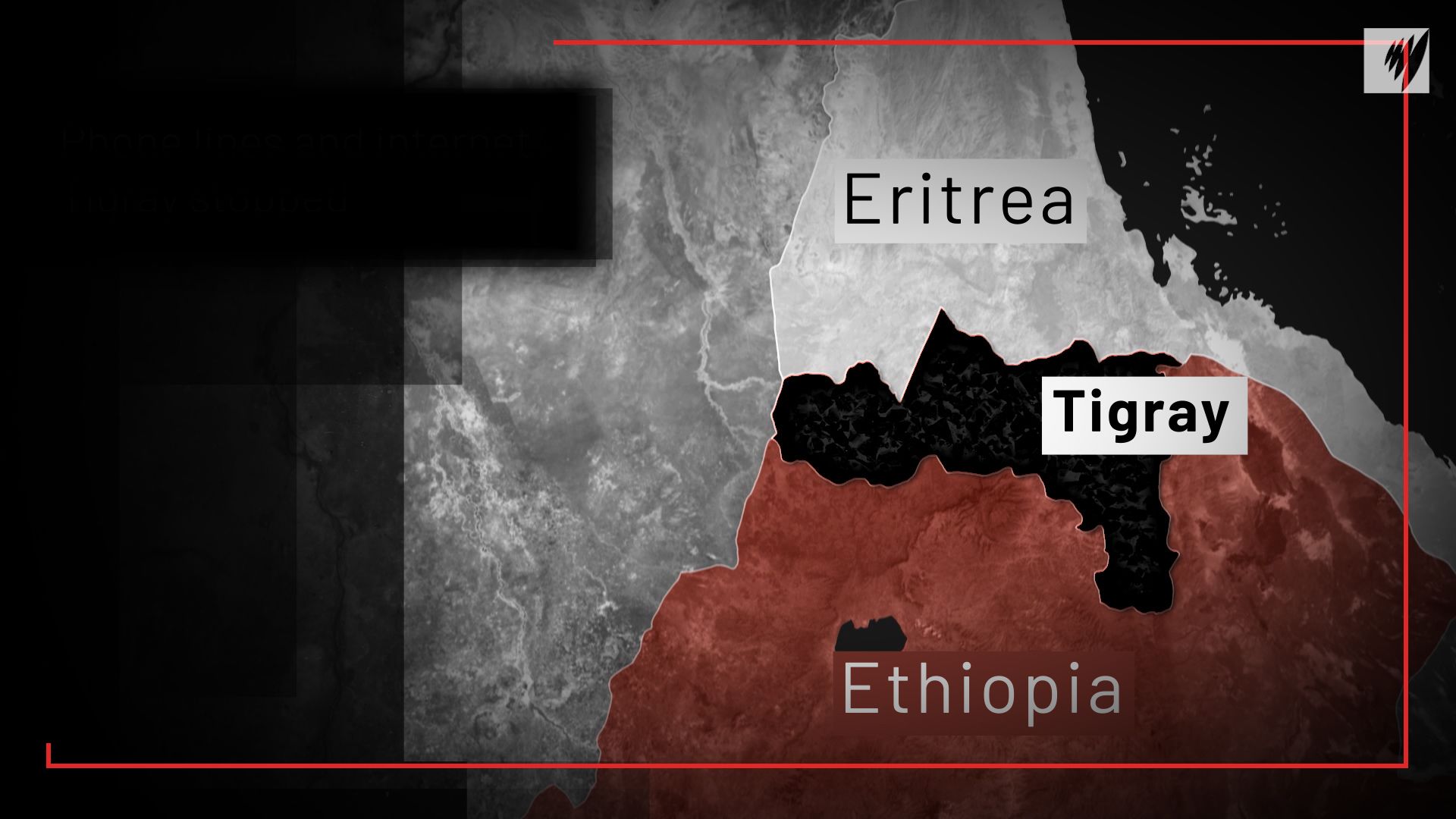
Fana, Tesfu and Amele were suddenly unable to contact their family.

They began hearing stories of shellings, rape, forced starvation and massacres.
Tesfu, Fana and Amele describe what it's like not hearing from family.
Tesfu, Fana and Amele describe what it's like not hearing from family.
Fana arrived in Australia 16 years ago. She studied in Sydney at Macquarie University, qualifying as an accountant. A job she loved.
Eventually, she met her husband and moved to Melbourne. She now helps with the finances of his construction business, while raising three kids all under the age of six.
Most of her family is back in Tigray, she last visited two years ago. At that time, she describes it as a peaceful, beautiful place.
Despite an unstable history of violence in the region, Fana never thought she would be in this situation.



Tesfu arrived in different circumstances 22-years-ago. He had fled the region due to conflict, arriving in Australia on a humanitarian visa.
In his time here, Tesfu studied at university, receiving a bachelor’s degree in community development.
But he found his true passion almost a decade later as a driving instructor. He runs his own business, mainly teaching adult migrants who have fled unsafe countries. Tesfu helps them overcome PTSD and other issues to become confident drivers.
“It is not just for the sake of income, it is for the community.”
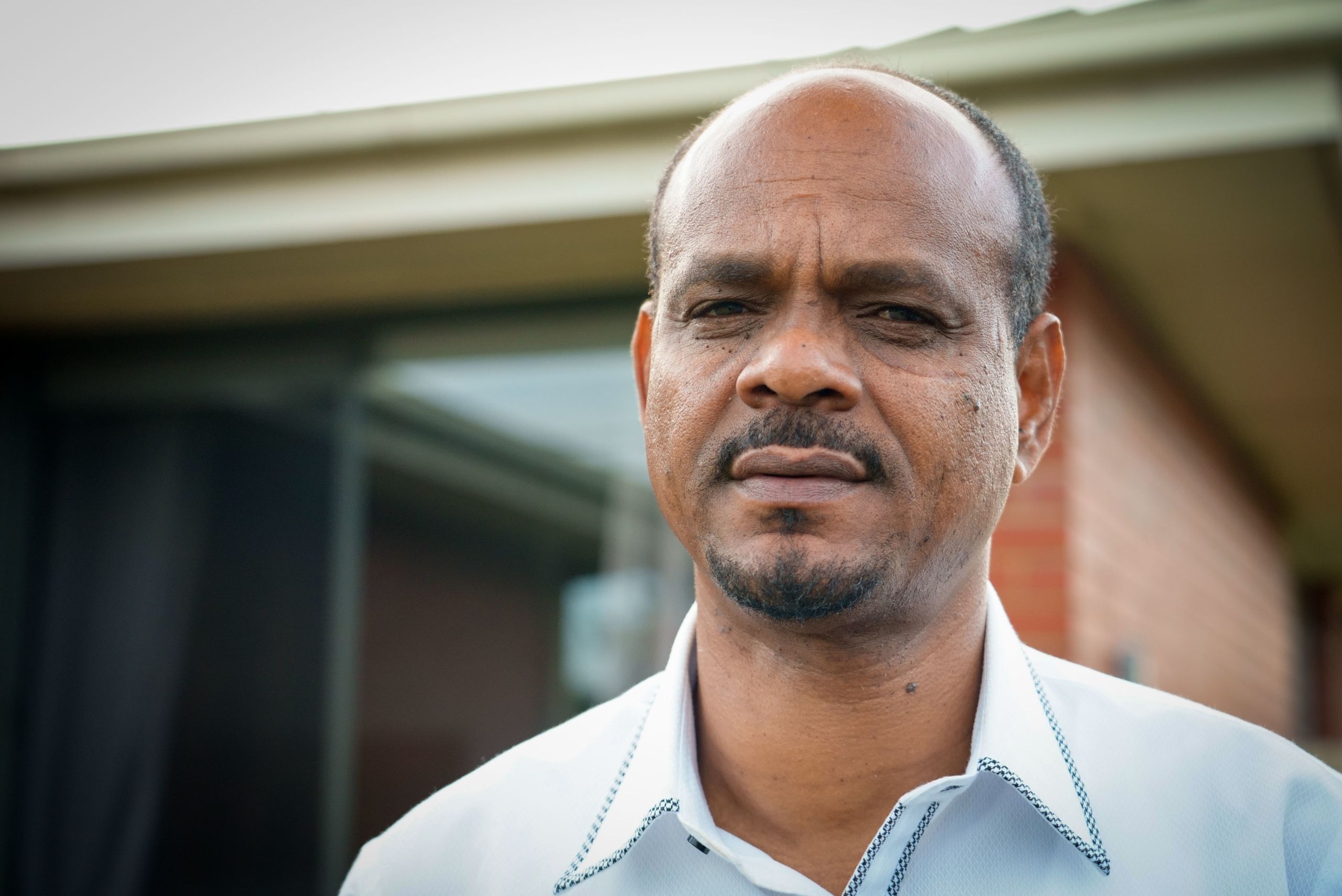


Like Tesfu, Amele arrived in Australia looking for peace and stability.
She has already survived great trauma in her life, including being taken from her highschool at 15 and imprisoned, beaten and tourtured.
Amele arrived in Australia in 1992 and has worked as an interpreter.
But in recent years she has discovered a passion for childcare and aged care.
“Helping people is my passion.”
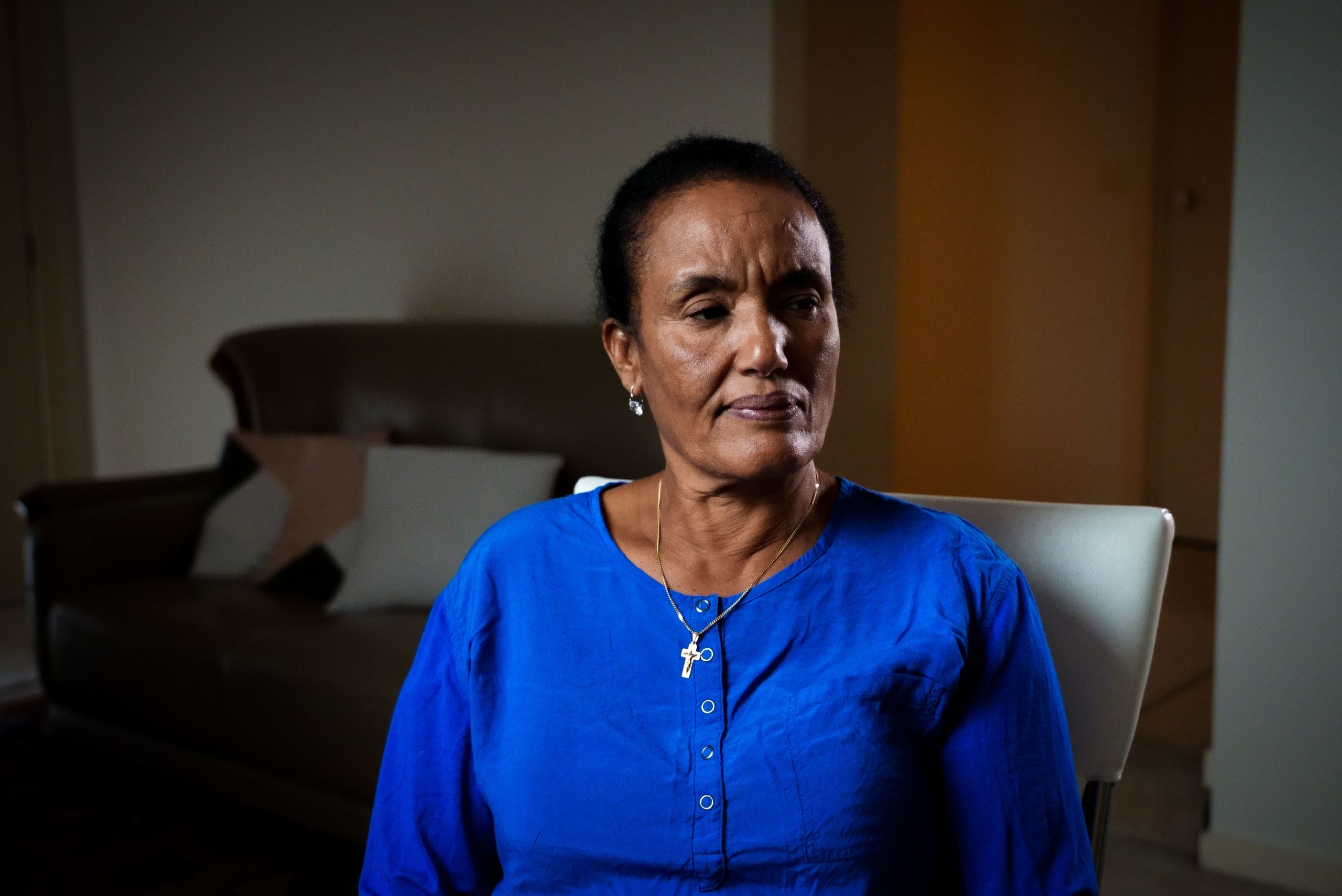
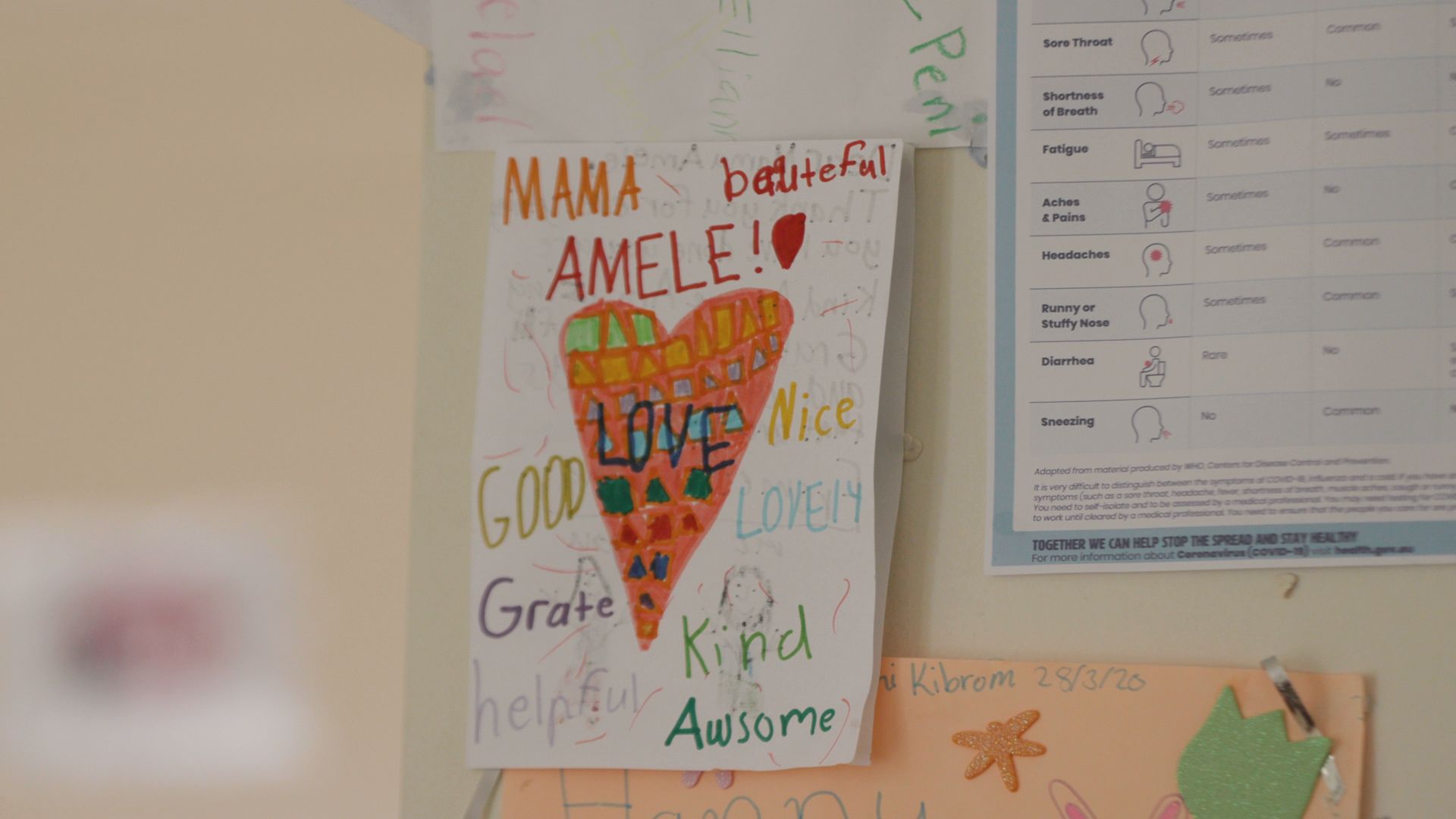

The three are part of Australia’s Tigrayan diaspora, which makes up about 12 per cent of Australia’s Ethiopian population.
All three had been enjoying a relatively routine life, grateful to be calling Australia home.
But in November 2020 all of that changed.
During the communication blackout, allegations of human rights abuses commited against Tigrayans began.
In January, limited communication was restored.
Fana spoke to her brother on the phone.
Fana was told her brother died during the shelling of his work at a water plant. She believes it was targeted to impact water supply to the region.
But Fana considers her brother lucky.
“He at least got a burial.”
“What happened to my cousin was gruesome.”
Fana says her cousin searched for her brother’s body, found him, and buried him. Upon his return home, her cousin was stopped by soldiers and she says he was then killed with three others.
Her 80-year-old uncle found his body, in his pocket was both his brother’s and his own ID.
Her uncle then dragged his body and managed to dig a shallow grave. Fana says this image haunts her.
Fourteen other members of her extended family have since died in the conflict, says Fana.

“The trauma and that psychological damage these people have created is just enormous and long lasting.”

Tesfu says he almost collapsed when he received a call from his brother in January.
He was sure he would be dead.
Both cried. Tesfu told him that he didn’t want to know how many people had died.
His worst fears were realised when his brother eventually revealed 11 of his cousins were murdered during Christmas lunch. They had gathered at their grandfather’s home when Eritrean troops had entered.

“And knowing that people are crying out until their voice boxes are worn out, and no one is there to hear them, no one to help them. It is hurting.”
"It has been almost four months since Tigray became a slaughtering house. Every day, the atrocity is being intensified."

Amele’s family tried to hide the bad news. But she insisted, she wanted to know.
Eventually, she was told her brother was killed by soldiers, alongside his cousin’s grandchildren, and other people from the area.
Amele’s brother was a farmer. They were taken out into a field group and shot, she was told.
Amele says one of the most painful thoughts is that he did not get a proper burial.

“Every morning, I wake up, and I ask myself, is that right? How? Why? There is no reason for him to be killed. Because he's not a politician. He's not rich.”
"And every morning I ask: What's the word doing? Did they say something? Will they rescue the people who are dying?"

Allegations of human rights abuses in Tigray include: the killing of civilians, massacres, sexual and gender-based violence, indiscriminate shelling, unconfirmed reports of mass graves, the forced displacement of residents of Tigray and Eritrean refugees, forced starvation, and looting.
These members of the Tigray community in Australia say hunger and rape is being used as a weapon.
The community say that family is telling them Ethiopian and Eritrean troops are sabotaging farmlands as the wet season aproaches, which will deepen the region's food crisis.
There is still limited access for journalists, aid groups, and human rights investigators to enter the region - which has added to the complexity of verifying reports.
The Ethiopian government first denied any civilians had been killed and foreign military were not in the region.
In March, the government conceded that Eritrean troops had entered Tigray.
The government has said it is, “taking steps to address human rights abuses that occurred.”
However, they maintain they are not responsible for any human rights abuses, pointing the finger at the TPLF.
The TPLF are also denying that they have perpetrated any human rights abuses.
The Ethiopian government says the international media is pursuing an agenda against the Ethiopian government, and are biased toward the TPLF.
They say that life in the region has returned to normalcy, a claim disputed by humanitarian groups and experts.
The Ethiopian government posted a statement to Twitter on April 8.

“The government of Ethiopia urges the international community to not be easily swayed by the propaganda campaign of the TPLF clique and its sympathizers, including the international media that tend to whitewash the crimes of the clique that has a track record of committing ineffable atrocities on Ethipians for more than three decades.”
“The international community will understand the matter at hand objectively by applying a rudimentary logic reasoning heeding to the fact that the concerted disinformation campaign by International media on Ethiopia cannot be a basis for the reality on the ground.”
SBS Dateline wrote to the Ethiopian Ministry of Foreign Affairs but did not receive a reply.
In a statement to SBS Dateline, the Ethiopian Embassy in Canberra said the government is committed to investigating human rights abuses in Tigray and claim all abuses have been committed by the TPLF and their allies.
“In line with the government’s commitment to uphold rule of law and bring to account anyone who is responsible for committing such heinous crimes, federal investigators are conducting investigations in relation to other credible allegations of atrocities and serious human rights abuses in other parts of the region, including in Axum.”
The statement says that international and local media are welcome into the region to cover the events and activities in Tigray, but urge the international community not to be swayed by the propaganda campaign of the TPLF supporters and their paid propagandists.
“TPLF supporters which are undergoing rallies are feeding biased information to the international community.”
They say the communications blackout was caused by the TPLF junta, which destroyed infrastructure.
“The federal government is spending huge money to rebuild the damaged infrastructure. Telecommunication is now restored in the region and the Diaspora members are able to get in contact with their families.”
Senior analyst for Ethiopia at the International Crisis Group, an independent conflict-prevention organisation, William Davison said evidence shows that despite the government’s claims, the conflict is ongoing.
“Over the last few months, we've seen the increase in intensity of insurgency, some large scale confrontation, some sort of more guerilla style tactics, hits and runs, attacks on convoys,” he said.
He says there is a “huge trust issue” with the claims made Ethiopian government, pointing to inconsistencies in their statements since November.
“For example, I think the key part of this has been the insistence from the government that Eritrea's military was not involved in this conflict. However, it's been apparent since November that they were involved.”
On March 5, The Human Rights Watch released a report stating:
“Eritrean armed forces massacred scores of civilians, including children as young as 13, in the historic town of Axum in Ethiopia’s Tigray region in November 2020.”
The UN says the humanitarian situation is dire and have launched a probe into human rights abuses. This will be carried out by the Ethiopian Human Rights Commission (EHRC), which is connected to the Ethiopian government, and the Office of the United Nations High Commissioner for Human Rights (OHCHR).
The foreign ministries of Canada, France, Germany, Italy, Japan, the UK and the US as well as the European Union's top diplomat said in a joint statement this month that they "condemn the killing of civilians, sexual and gender-based violence, indiscriminate shelling and the forced displacement of residents of Tigray and Eritrean refugees".
They called on all parties to "exercise utmost restraint, ensure the protection of civilians and respect human rights and international law" and to "provide immediate, unhindered humanitarian access" to the region.
Australia’s Minister for Foreign Affairs Marise Payne has said Australia expresses its grave concerns of reported egregious human rights atrocities in Tigray, such as systemic sexual and gender-based violence.
“Australia has registered its concern in the United Nations Human Rights Council and directly with the Ethiopian Government. Australia continues to urge the Ethiopian Government to bring all perpetrators to account and end the violence,” a DFAT spokesperson told SBS Dateline in a statement.

Getty Images
Getty Images

Getty Images
Getty Images

Getty Images
Getty Images

Woman who fled Tigray.
Woman who fled Tigray.
For the Tigrayan diaspora in Australia, they continue to fear for the safety of their families.
They are desperate for more action, calling on the Australian government, and leaders around the world, to do more to end the crisis and the suffering of innocent civilians.
Fana hopes that the international community will begin to pay more attention to the region.
“But I know that phone call comes with an end. And every time he calls the voice on the other end is so he can hear how they feel for their lives.
"And all this is happening in a darkness... To hide all this crime from the watchful eyes of the world.”

Readers seeking support can contact Lifeline crisis support on 13 11 14, Suicide Call Back Service on 1300 659 467 and Kids Helpline on 1800 55 1800 (for young people aged 5 to 25). More information is available at Beyond Blue.org.au and lifeline.org.au. Embrace Multicultural Mental Health supports people from culturally and linguistically diverse backgrounds.

